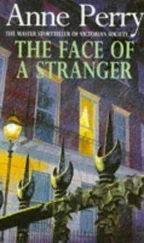That evening, he attended the Mass in the Cathedral of Saint Jean. Work on the building had begun nearly a century ago and was still far from finished. Even so it looked magnificent, severe and elegantly Romanesque.
The sweet perfume of incense filled his head, and it all swelled in a complex rhythm, carrying him along toward that exquisite moment when the sacrament of bread and wine would become the body and blood of Christ, and in some mystical way they would be united, cleansed of sin and renewed in spirit.
Was there such a thing as communication with God? Did these men around him experience it? Or was it just the music and the incense, the hunger to believe, creating the longed-for illusion?
Or was it the lies and the doubts Palombara allowed to poison his soul that rendered his ears deaf to the voices of angels? Memory returned with a jolt of sensual pleasure and emotional guilt. As a young priest, he had counseled a woman whose husband was distant and humorless, not unlike Vicenze. Palombara had been gentle with her and made her laugh. She had fallen in love with him. He saw it happening and enjoyed it. She was warm and lovely. He had lain with her. Even as he stood here in this cathedral, while some cardinal offered up the Mass, the incense in his nose and throat was gone for a moment and he could smell the fragrance of her hair, feel the warmth of her flesh, and see her smile.
She became with child, Palombara’s child, and they had agreed to let her husband believe it was his. Was that wrong? Wise or not, it was a coward’s lie.
Palombara had confessed to his bishop, chosen his penance, and received absolution. Better for the Church, and so the welfare of the people, if it was never known. But was penance enough? There was no peace inside him, no sense of having been forgiven.
Standing here with the music, the color and light, the rapt faces of men whose minds could be as far from God as his own, he had a sense of not having tasted the fullness of life, and the beginning of a terrible fear came to him that maybe there was no more than this. Maybe real hell was the fact that there was no heaven?
The embassy of Michael Palaeologus finally arrived in Lyons on June 24. They had been delayed by bad weather at sea and were too late for much of the discussion. They presented a letter from the emperor, signed by fifty archbishops and five hundred bishops or synods. Their good faith could not be denied. It seemed victory for Rome had come easily.
On June 29, Gregory celebrated the Mass in the Cathedral of St. Jean again. The Epistle, Gospel, and Creed were sung both in Latin and in Greek.
On July 6, the emperor’s letter was read aloud and the Byzantine ambassadors promised fidelity to the Latin Church and abjured all the propositions it denied.
Gregory held the world in his hands. It was all accomplished; unworthy bishops had been deposed, certain mendicant orders suppressed, and the orders of St. Francis and St. Dominic warmly approved. The cardinals would no longer be able to dither and delay the election of a new pope. Rudolph of Hapsburg was recognized as the future monarch of the Holy Roman Empire.
In spite of the death of Thomas Aquinas on his way to Lyons, and of St. Bonaventure in Lyons itself, Gregory’s cup of triumph ran over.
Palombara felt as if there was nothing left for him to do.
Still, Gregory wished both Palombara and Vicenze to return briefly to Rome and then prepare to sail to Constantinople. If they met with the same weather the Byzantine envoys had, this could take as long as six weeks. They would not arrive until October. But they had something priceless to deliver: an embassy of hope for the unity of the Christian world.
It was August and miserably hot in Rome when Palombara, returning from Lyons, walked across the familiar square toward the great arches in front of the Vatican Palace, the enormous building stretching left and right to either side, windows glinting in the sun. As always, people came and went; the wide steps were dotted with the colors of pale robes, purple hats and capes, touches of scarlet.
This was to be Palombara’s last audience before departing again. He already knew their purpose was to make sure that the emperor Michael Palaeologus kept all the great promises he had written to the pope, that there was indeed substance behind the words. It might become necessary to warn Michael of the cost to his own people should they fail. The balance of power was delicate. Another crusade led by Charles of Anjou might not be far away. Men and ships would sail for Constantinople by the thousand, armed for war. The city’s survival depended upon them coming in peace, as brothers in Christ, not as invading conquerors of an alien faith, as they had been at the beginning of the century, killing and burning, destroying the last bastion against Islam.
Palombara looked forward to the challenge of it, and the adventure. It would stretch his intelligence, test his judgment, and, if he was successful, considerably advance his career. And he also looked forward to being immersed in a new culture. The great buildings were still left, the Hagia Sophia, at least, and the libraries, the markets with all the spices, silks, and artifacts of the East. He would enjoy a different lifestyle, more of the Arab and the Jewish thought, and of course more of the Greek than was easy to find here in Rome.
But he would miss what he was leaving behind. Rome was the city of the Caesars, the heart of the greatest empire the world had ever seen. Even St. Paul had been proud to claim its citizenship.
But Palombara was also an intruder here, a Tuscan, not a Roman, and he missed the beauty of his own land. He loved the long view of rolling hills, so many of them forested. He missed the light on them at dawn, the color of sunset and shadow, the silence of the olive groves.
He smiled as he walked toward the wide steps. He was halfway up when he realized that one of the men standing waiting was Niccolo Vicenze, his pale, zealous eyes studying Palombara.
He looked at Vicenze’s dour face with its pale brows and felt a chill of warning.
Vicenze smiled with his lips, his eyes unchanging as he moved into Palombara’s path. “I have our instructions from the Holy Father,” he said with no inflection in his voice except a slight lift. It almost hid his satisfaction. “But no doubt you would like the Holy Father’s blessing upon you also, before we leave.”
In one sentence he had made Palombara redundant: an escort, there simply because one was customary.
“How considerate of you,” Palombara replied, as if Vicenze had been a servant who had obliged him beyond his duty.
Vicenze looked momentarily confused. Their natures were so utterly disparate that they could have used the same words to convey opposite meanings.
“It will be a great achievement to bring Byzantium back into the true Church,” Vicenze added.
“Let us hope we can accomplish it,” Palombara observed dryly, then saw the gleam in Vicenze’s pale eyes and wished he had not been so candid. There were seldom meanings behind meaning with Vicenze, only the obsession for control and conformity. It was a strangely inhuman trait of character. Was it holiness, the dedication of a saintly man, or the madness of one who had not too much love of God so much as too little of mankind? Since he last saw him, he had forgotten how much he disliked Vicenze.
“We will be equal to the task. We will not cease until we are,” Vicenze said slowly, giving each word weight. Perhaps he had a sense of humor after all.
Palombara stood in the sun and watched Vicenze walk down the steps and into the square with a slight swagger, papers in his hand. Then he turned and went up past the guard and into the coolness of the shadowed hall.
Читать дальше











